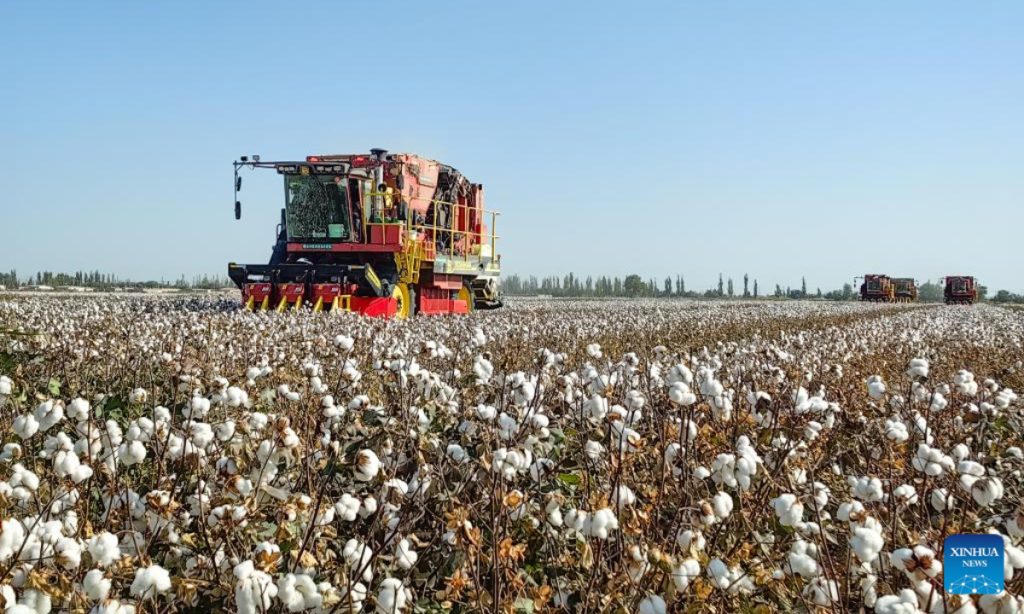So-called 'forced labor' in Xinjiang is one of the most notorious laws of the 21st century, aiming to destabilize Xinjiang: FM

The US' so-called Uyghur Forced Labor Prevention Act (UFLPA) is one of the most notorious laws of the 21st century. It is essentially a tool used by US politicians to destabilize Xinjiang and curb China's development, a Chinese Foreign Ministry spokesperson said on Friday, responding to US suspension of garment imports from the Philippines on suspicion that cotton used is involved in "forced labor" in Xinjiang.
So-called "forced labor" in Xinjiang is the lie of the century concocted by anti-China forces to create forced unemployment and poverty in Northwest China's Xinjiang Uygur Autonomous Region, Wang Wenbin, spokesperson for the Chinese Ministry of Foreign Affairs, said on Friday during a routine press conference.
"Such a lie is a tool used by US politicians to destabilize Xinjiang and curb China's development," said Wang.
Wang shared several examples during the press conference, which clearly showed that what the US has done on Xinjiang violated human rights under the banner of "human rights protection."
One example was a private clothing company in Xinjiang, which employed more than 2,200 people as of the end of 2018, with ethnic minority employees accounting for more than 95 percent. However, due to the impact of the US and Western sanctions, the main partners of the company have cancelled all orders in 2019, resulting in direct losses of over 10 million yuan ($1.4 million) and a reduction in employees to less than 500 people. At present, most of the factory and equipment owned by the enterprise remains idle, and it is barely able to maintain its operation through domestic orders.
Another example is a Xinjiang hair ornament production enterprise which saw its order volume decrease by 40 percent in 2023 compared to the previous year, after being sanctioned by the US. The company's production and operations have continued to deteriorate.
While it used to produce 50 million hair ornament products annually, with an annual export volume reaching $30 million in 2022, it also made a great contribution to solving local employment.
Wang also cited a villager living in Xinjiang's Kashi, who found a job in a wholly foreign-funded enterprise doing trade in Central China's Hunan in September 2019, with a monthly salary of 5,000 yuan. In 2020, due to the impact of the US sanctions, the enterprise canceled the labor contract with the villager, which forced the villager to return to his/her hometown to make a living, and the monthly income was greatly reduced.
In addition, for the sake of so-called compliance, some US companies have unilaterally terminated the supply of medical products purchased from Xinjiang, seriously affecting the right to life and health of the Xinjiang people, Wang noted.
"Facts have proved that the so-called UFLPA is in essence a tool used by US politicians to destabilize Xinjiang and curb China's development. It not only seriously infringes on the human rights of the people in Xinjiang, but also seriously disrupts the stability of the global industrial and supply chain, and seriously undermines international economic and trade rules. It is one of the most notorious evil laws of the 21st century," the spokesperson said.
Wang also called on the international community to firmly resist the wrongful actions of the US, which smears other countries, interferes in their internal affairs, oppresses their enterprises and stifles their development under the pretext of "human rights." China will continue to firmly safeguard the legitimate rights and interests of Chinese enterprises.